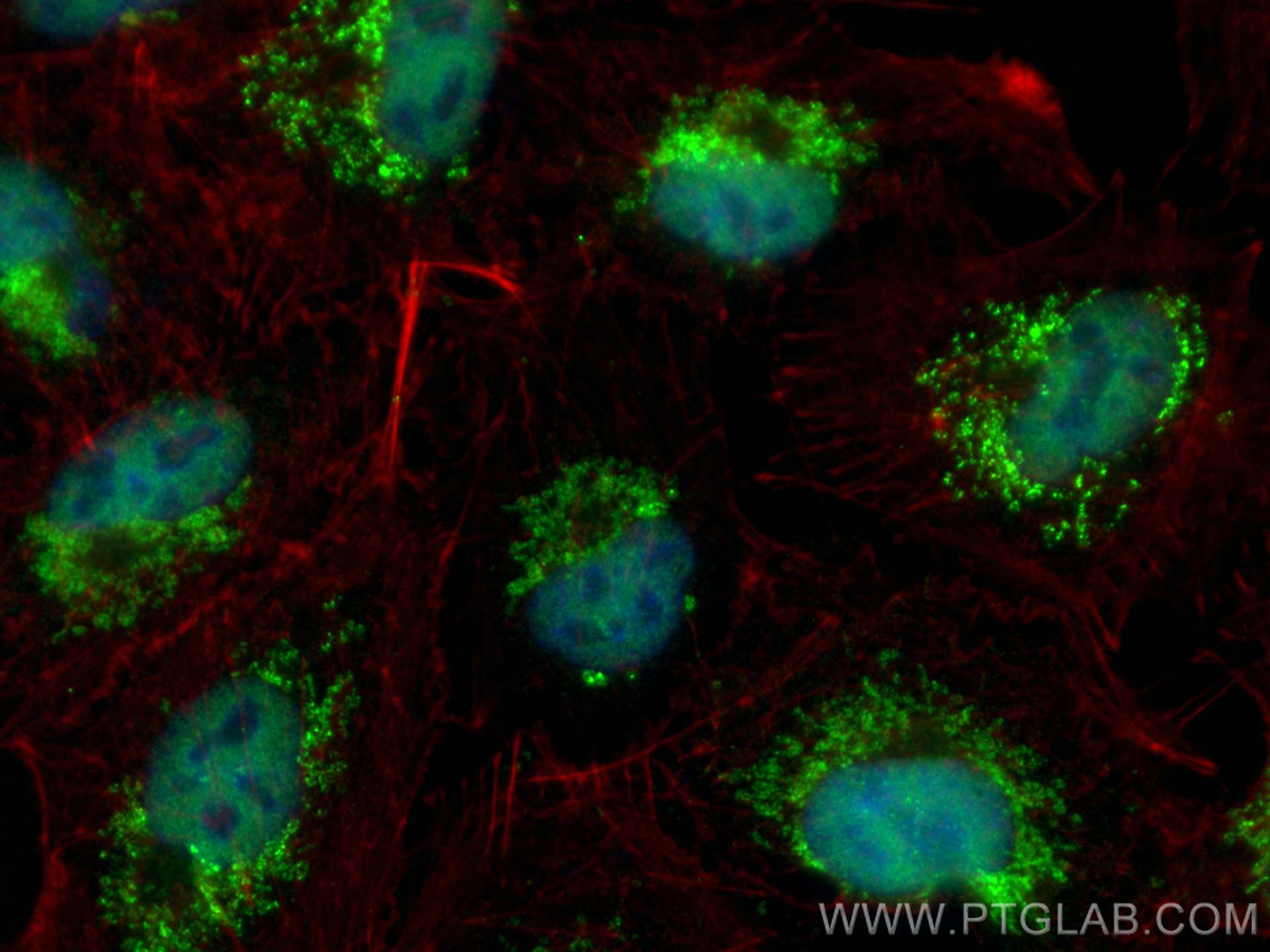验证数据展示
经过测试的应用
| Positive WB detected in | SK-BR-3 cells |
| Positive IF/ICC detected in | A549 cells |
推荐稀释比
| 应用 | 推荐稀释比 |
|---|---|
| Western Blot (WB) | WB : 1:500-1:1000 |
| Immunofluorescence (IF)/ICC | IF/ICC : 1:50-1:500 |
| It is recommended that this reagent should be titrated in each testing system to obtain optimal results. | |
| Sample-dependent, Check data in validation data gallery. | |
产品信息
16159-1-AP targets ZMIZ1-Specific in WB, IF/ICC, ELISA applications and shows reactivity with human samples.
| 经测试应用 | WB, IF/ICC, ELISA Application Description |
| 经测试反应性 | human |
| 免疫原 |
Peptide 种属同源性预测 |
| 宿主/亚型 | Rabbit / IgG |
| 抗体类别 | Polyclonal |
| 产品类型 | Antibody |
| 全称 | zinc finger, MIZ-type containing 1 |
| 别名 | ZMIZ1, RAI17, PIAS-like protein Zimp10, PIAS like protein Zimp10, MIZ |
| 计算分子量 | 115 kDa |
| 观测分子量 | 120 kDa |
| GenBank蛋白编号 | NM_020338 |
| 基因名称 | ZMIZ1 |
| Gene ID (NCBI) | 57178 |
| RRID | AB_3669232 |
| 偶联类型 | Unconjugated |
| 形式 | Liquid |
| 纯化方式 | Antigen affinity purification |
| UNIPROT ID | Q9ULJ6 |
| 储存缓冲液 | PBS with 0.02% sodium azide and 50% glycerol, pH 7.3. |
| 储存条件 | Store at -20°C. Stable for one year after shipment. Aliquoting is unnecessary for -20oC storage. |
背景介绍
ZMIZ2 and ZMIZ1 are members of a PIAS-like family of proteins that interact with nuclear hormone receptors. It can act as a transcriptional coactivator, increasing ligand-dependent transcriptional activity of AR and promoting AR sumoylation. The stimulation of AR activity is dependent upon sumolylation. This antibody is specific for ZMIZ1.
实验方案
| Product Specific Protocols | |
|---|---|
| IF protocol for ZMIZ1-Specific antibody 16159-1-AP | Download protocol |
| WB protocol for ZMIZ1-Specific antibody 16159-1-AP | Download protocol |
| Standard Protocols | |
|---|---|
| Click here to view our Standard Protocols |



